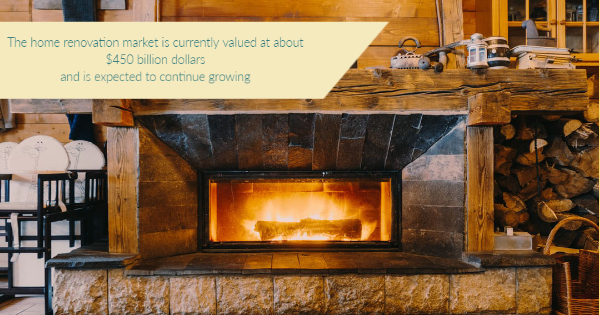The home renovation market has a value that currently stands at about half a billion dollars and it is expected to continue growing year-on-year. Basement remodeling is one aspect that is of interest to many homeowners today.
For most people, the basement is an extra space that you can turn into a cozy living area. You can add warmth and beauty with different types of furnaces available from fireplace companies. However, the process can be overwhelming depending on the structure of the basement, its layout, and your local building codes.
Before you can commence with your project, here are some factors to consider when choosing a fireplace for your home.
Safety and Building Codes
Safety is the one single factor you cannot ignore for your basement renovation project. The risks of carbon monoxide poisoning and fire are quite significant, given the enclosed structure and size of a typical basement.
The building codes for basement finishing in Colorado Springs require you to have alarms for smoke and carbon dioxide. You are also required to have an escape exit and insulation to protect the room from fire hazards. These are important points to remember when choosing furnaces from fireplace companies for your home renovation projects.
Types of Fireplaces
For your basement remodeling project, your fireplace will need to have a way to take the smoke outside. Fireplace companies have different types of furnaces that do not require a traditional chimney. But you will need a vent or a way to get rid of the burning fumes.
You also have to think about how convenient it will be to maintain the furnace. Maintenance tasks such as removing ash and debris from the fireplace are necessary.
There are three types of furnaces; wood-burning, gas, and electric.
Wood-Burning Fireplace
The tradition of using a wood-burning fireplace is already well established in many American homes. Perhaps it is the crackling sounds, or the use of firewood, that creates an ambiance that makes your home feel warm and cozy.
Another important advantage of wood furnaces is that they can be energy-efficient if built properly. When firewood burns, it gives off radiant energy, which heats up the room much faster. Other systems would require fans to push the air through the vent.
On the flip side, a firewood furnace may not be the best option if maintenance is an issue. If the ash and burned wood accumulate, they can increase the risk of a fire. It also requires a constant supply of quality logs that are flammable and challenging to store.
Gas Fireplace
Gas offers a more convenient option than firewood. You don’t have to deal with the hassle of getting rid of burned material and ash. You also don’t have to worry about having quality dry wood to keep the hearth burning efficiently.
That said, there are two main types of gas fireplaces you can find today.
Vent System: Vent systems come with a vent or chimney that directs the air from the furnace to the outside. Vent gas fireplaces are considered to be a safe option due to the minimized risk of smoke or harmful buildup of gases.
Vent-less System: Vent-less systems have no chimney to redirect the burnt air outside the house. Many vent-less systems from fireplace companies come with a sensor that turns off the gas if it detects carbon dioxide. They are, therefore, considered to be safe. They may not be suitable for your basement, especially if you do not have adequate space.
Electric Fireplace
An electric furnace does not have the natural look and ambiance of wood. It also relies on the power grid, which is susceptible to disruptions.
However, they are much easier to install and operate in a basement with limited space. An electric fireplace is also quite efficient for heating small rooms.
In Conclusion
A fireplace can add ambiance and warmth to your home. When installing furnaces in your basement, you need to consider safety, building codes, and space requirements. Most products from fireplace companies have several features. Your preferences and lifestyle will also determine your choice.




Recent Comments